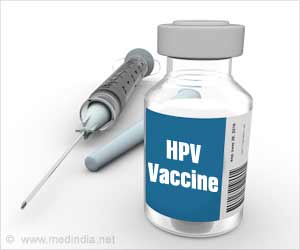Consensus statement supports fewer doses in children under age 15, urges action to increase national vaccination rates.

‘The new guidelines from the CDC recommend that children under age 15 should receive two doses of the 9-valent HPV vaccine at least six months apart.’





The new guidelines from the CDC recommend that children under age 15 should receive two doses of the 9-valent HPV vaccine at least six months apart. Adolescents and young adults older than 14 should continue to complete the three-dose series. Research shows there are a number of barriers to overcome to improve vaccination rates, including a lack of strong recommendations from physicians and parents not understanding that this vaccine protects against several types of cancer.
"Parents rely heavily on the recommendations of their child's health care provider for appropriate vaccination, and the medical community simply isn't consistently recommending the HPV vaccine like they do other public health prevention vaccines. This represents the No. 1 barrier to HPV vaccination and must change to reduce the burden of HPV-associated cancers in our community," says Electra Paskett, PhD, associate director for population sciences at the OSUCCC - James.
In an effort to overcome these barriers, NCI-designated cancer centers have organized a continuing series of national summits to share new research, discuss best practices, and identify collective action toward improving vaccination rates.
The original joint statement, published in January 2016, was the major recommendation from a summit hosted at The University of Texas MD Anderson Cancer in November 2015, which brought together experts from the NCI, CDC, American Cancer Society and more than half of the NCI-designated cancer centers.
Advertisement
The updated statement is the result of discussions from the most recent summit, hosted this summer by the OSUCCC - James. Nearly 150 experts from across the country gathered in Columbus to present research updates and plan future collaborative actions across NCI-designated cancer centers.
Advertisement
"As a global community, we need to unite around HPV vaccination as a true means of cancer prevention. I am a cancer control researcher but I'm also a parent of three boys. The HPV vaccine is cancer prevention and our best defense in stopping HPV infection in our youth and preventing HPV-associated cancers in our communities. Don't let your kids become our cancer patients."
Source-Eurekalert















